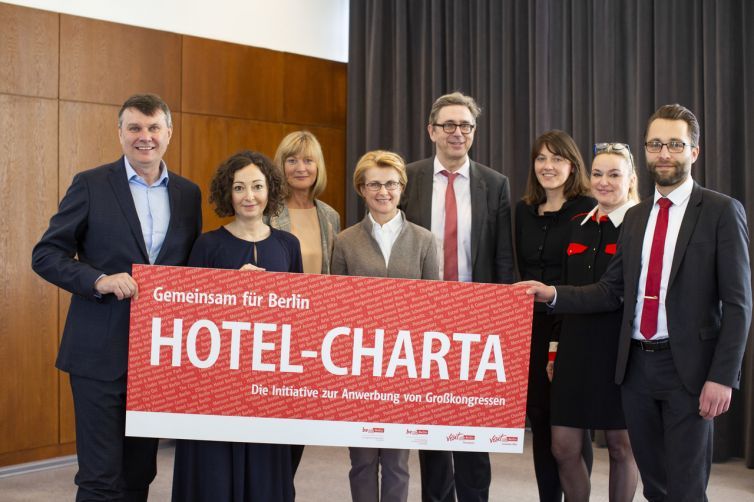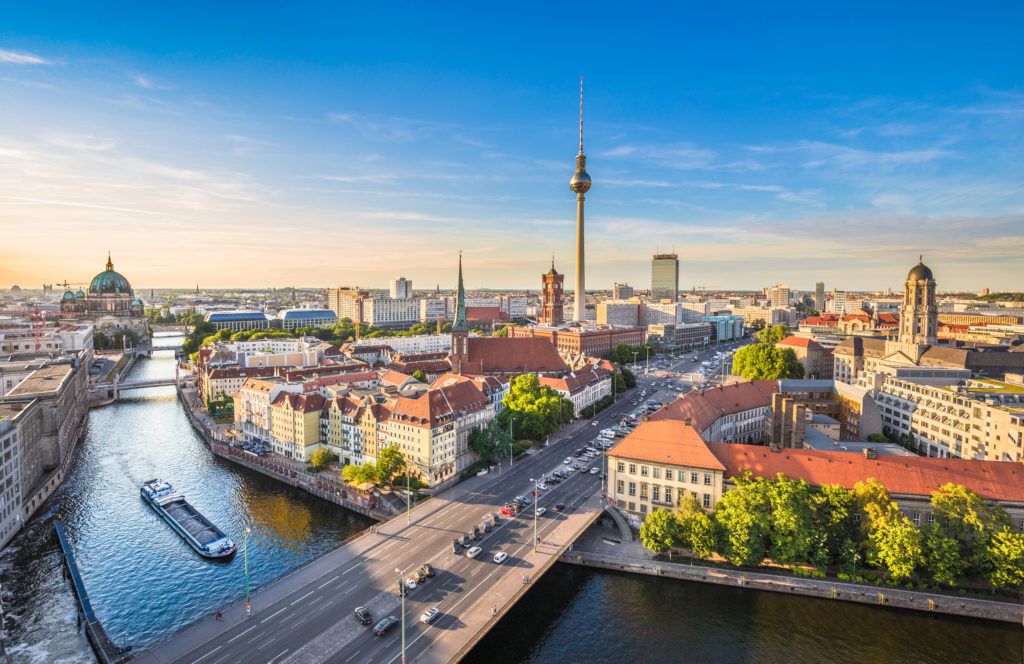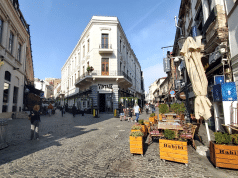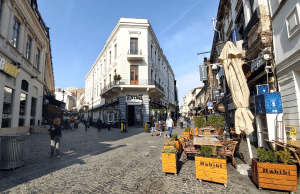What do you personally find appealing about Berlin?
I’ve worked on four different continents and for many international hotel chains. Most recently, I consciously opted for Maritim – the first German chain I’ve ever worked for – and I really wanted to work in Berlin. This is a city which still has so much untapped potential. That has a strong appeal – and Berlin has such a wealth of possibilities.

For example, launching a Hotel Charter. What is the idea behind it?
The Hotel Charter is a position paper for the entire city of Berlin. It’s a joint project by the hotel industry, the visitBerlin Convention Office, Berlin’s Governing Mayor, and the Senate Department for Economics, Energy and Public Enterprises. For the first time, it provides the right conditions specifically for event managers organising large conventions and congresses. Moreover, it also ensures transparent and facilitates booking and billing with different players. On the other hand, it is also a huge help in the bidding and organisation process – for the city and especially for the visitBerlin Convention Office.
So why now?
Berlin is a successful congress metropolis attracting growing numbers of events and attendees. So we asked ourselves: How can we enhance Berlin’s appeal for large congresses? And above all – how can we streamline the work with agencies and organisers so it is more straightforward and transparent?
And the answer was… ?
Our starting position was ideal, since generally all the hoteliers were, in principle, in favour of just such a Charter. In a first step, we primarily brought event hotels and major players together around the table to establish a common ground. The nuts and bolts of those discussions flowed into the small print – blocks of rooms, timeframes, cancellation deadlines, rate discounts and so on. After that was agreed, we had the details checked comprehensively for legal or antitrust issues. Then we all signed up to it. In the knowledge this framework was legally compliant, we could then contact smaller hotels without the legal resources to run such checks themselves. When we had around 80 or 90 hotels on board, we approached the Senate Department – a step we felt it was important to take together.

And how was the cooperation with the city authorities?
From the outset, we were all working for the same goal – enhancing the city’s appeal for large congresses and events. On a range of working levels, we had interesting and constructive dialogue and discussions with the Berlin Senate and the Governing Mayor’s Office. Of course, some points needed tweaking, but the core of the Charter is as originally envisaged.
And what role did the Berlin Convention Office play?
Across this entire process, it was a big advantage to be able to draw on the BCO’s extensive experience. BCO staff are all experts in the field, familiar with the key factors for large congresses – and also aware of potential hurdles for organisers making enquiries. Moreover, the BCO understands the nature of cooperation with municipal organisations and also what it means to work with several hotels in parallel. This experience was enormously valuable in designing the Hotel Charter.
Why does Berlin need a Hotel Charter at all?
Planning major events and congresses in Berlin involves a broad spectrum of different actors. And so it was already clear that a Hotel Charter was a good idea. The Charter aims at facilitating the planning process – and with the same conditions for all, it makes things more transparent, simpler, and faster. And that means greater efficiency and productivity for everyone involved.

Is the Hotel Charter a USP for Berlin?
Vienna and Paris both already have a Hotel Charter, so we had a good model to follow. Nonetheless, this Hotel Charter is a strong provision of services for agencies and organisers of large congresses – and so far it is unique in Germany. Above all, it shows how everyone in Berlin is working together, joining forces to expand the congress sector – and that represents a first and very crucial step.
So if the Hotel Charter is just the start, where does it go from here?
The Hotel Charter has to be a living document. In a fast-moving world where the competition never sleeps, the Charter can only be the beginning. We’d like to see this as an impetus to further strengthen cooperation across Berlin and encourage the city’s active support for the conventions sector. If the Hotel Charter helps us attract more large congresses, trade fairs and events to Germany’s capital, this does not just cash out in higher occupancy rates in hotels and more location bookings. It also highlights the need to find a suitable replacement for the International Congress Centre (ICC) as soon as possible – after all, such a facility is a key locational factor and a cornerstone in Berlin’s success.
What are the advantages for the hotels involved?
The MICE business is attractive for all those involved across the city. Since it generates five times the sales of tourism, it is also very good business for hotels. Yet we also need to avoid a situation where, with ever cheaper rates, we end up cutting the ground from under each other’s feet. That is a real danger in destinations such as Berlin, which this year alone will again see hotel capacity rise by 15%. On the other hand, since large congresses and trade fairs only last three days on average, technically, any fall in demand would be perceptible. The aim is to balance that out with new fairs and conventions.
How does the Hotel Charter help to achieve that aim?
For large congresses, the booking window is growing steadily shorter, but is still between 18 and 36 months. So here too, the Charter helps hotels plan their capacities better. The Charter’s framework conditions and General Terms and Conditions are transparent for and accepted by everyone involved. As a result, the Hotel Charter not only presents a unified front, but also saves us long and involved negotiations processes which could, at times, tie up our resources.
How does the Hotel Charter work in practice?
In future, the Hotel Charter has to be included in every sales talk. If an enquiry is too large for an individual hotel to handle, the Charter needs to be ready so we can convincingly say to the event organisers – in all areas, Berlin is the location for trade fairs and congresses. Unconditionally.














